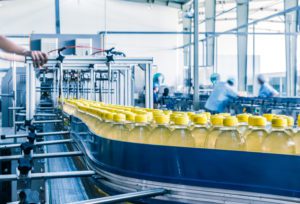3 Key Challenges Beer Manufacturers Encounter
Beer manufacturers are accustomed to navigating supply and demand fluctuations influenced by factors like seasonality, consumer trends, economic downturns, and promotional activities. However, recent years have presented unique challenges. While some face surges in demand due to shifting consumer behavior, others grapple with temporary downsizing amidst evolving global economic patterns. Balancing operational capacity, safety priorities, and supply chain resilience remains a pressing issue.
3 Key Challenges Beer Manufacturers Encounter
There are three challenges food manufacturers face to keep their operations productive.
1. Keeping Employees Safe
Ensuring employee safety in a beer operation is critical for several reasons. Firstly, it is a moral obligation of the company to protect the well-being of its workers. Additionally, prioritizing worker safety fosters a positive work environment, boosting morale and productivity. Moreover, implementing safety measures such as increased PPE availability and enhanced cleaning procedures not only safeguards employees’ health but also reduces the risk of operational disruptions due to illness or absenteeism. Making it easy for companies to keep employees safe is essential because it streamlines compliance with regulations and standards, minimizes administrative burden, and allows businesses to focus on their core operations. Ultimately, by prioritizing worker safety, beer manufacturers can ensure business continuity and maintain the integrity of their manufacturing operations.
2. Being More Productive and Increasing Production Capacity
When it comes to meeting demand, beer manufacturers face the challenge of navigating evolving consumer behavior. As some manufacturers experience a surge in demand, they must ensure end-to-end visibility into operations to effectively manage capacity. This requires flexibility and efficiency to either offset reduced margins due to fluctuating demand or scale up production to meet increased demand. Despite these challenges, F&B businesses are optimistic about the future, believing that they will emerge stronger with the help of digital technology, which enables real-time visibility, flexibility, and enhanced productivity throughout operations.
3. Meeting Changing Consumer Buying Preferences
Acknowledging that the pandemic is behind us, it remains imperative for food manufacturers to analyze trends and have access to predictive data on consumer buying preferences.
During the COVID-19 pandemic, social distancing restrictions and bans on large gatherings halted beer consumption at events like concerts and sporting events, impacting breweries’ profits due to lower margins from supermarket beer sales compared to event sales.
These changes in consumer behavior have made it challenging for food manufacturers to accurately gauge demand. Past buying patterns no longer predict future demand.
As food manufacturers navigate these challenges, technology plays a crucial role in their journey, enabling them to adapt and thrive in the evolving consumer landscape.
Enable Leaner Manufacturing With Connected Worker® by Parsable
A spoiled beer batch, depending on when it is caught, can lead to varying degrees of waste. If a spoiled batch leaves the manufacturing plant and goes to the warehouse, or worse, makes its way to store shelves, it results in significant financial losses and damages the brand’s reputation. How can you react faster to waste and catch these issues early on?
In beer manufacturing, there is an incredible amount of waste that occurs, much of which comes from human error in the manufacturing process. This occurs when workers are not trained correctly or do not realize that their actions are incorrect. Digital standard operating procedures (SOPs) provide guidance to ensure workers are properly trained, understand how to execute a procedure, follow job steps consistently, and reduce the probability of mistakes due to involuntary human error.
Connected Worker can turn static paper-based industrial work processes into dynamic, digital and interactive procedures. It is a simple and easy to use solution to help your frontline workers and internal experts capture, digitize and author SOPs – empowering frontline workers in beer manufacturing plants. This is a key step to ensure efficiency and to be able to meet changes in production. It also helps guide workers on new or unfamiliar processes, with step-by-step instructions built directly into the app.
Relying on traditional paper-based procedures and capturing data on paper can result in pencil-whipping, human errors in data recorded and delayed response times. For example, if you find a defect on your production line, that gets captured on paper, gets input into an Excel dashboard, gets sent to the quality person, who then alerts the production manager. Not only is there room for error in the data being captured, but there are a lot of hand-offs and time wasted. With a digital platform, you are able to capture data throughout every step of the manufacturing process and shorten the response time. Efficiency comes from the granularity of data and the ability to receive near real-time updates in analytics dashboards – to identify potential issues or trends in processes and to notify the appropriate team member immediately within the app.
Connected Worker empowers those on the industry front lines with the tools and the peace of mind to get their jobs done as safely and efficiently as possible. Digital tools are no longer a nice to have, but a must have, empowering your teams to be successful in these changing world environments.
Want to learn more? Our case study shows how Parsable helped a Global brewery enable operators on the floor to quickly and easily complete autonomous maintenance tasks for a 5% increase in OEE.






